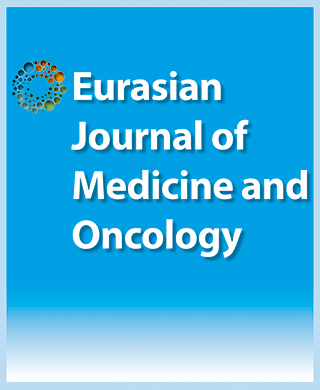

STK11 is a Potential Therapeutic and Prognostic Biomarker and Correlates with Immune Infiltrates in Non-Small Cell Lung Cancer
Imane Bensalim1, Youssra Boustany1, Abdelmoiz El Faqer2, Abdelilah Laraqui1, Bouchra Belkadi11Microbiology and Molecular Biology Team, Faculty of Sciences, Mohammed V University in Rabat, Morocco., 2Sequencing Unit, Virology Laboratory, Center for Virology, Infectious and Tropical Diseases, Mohamed V Military Training Hospital, Faculty of Medicine and Pharmacy, Mohammed V University in Rabat, Morocco,
Objectives: This study aims to elucidate the role of Serine Threonine Kinase 11 (STK11) in non-small cell lung cancer (NSCLC), particularly its involvement in resistance to anti-PD-1 monoclonal antibody therapy in KRAS-mutated NSCLC. The study also explores the implications of STK11 alterations in prognosis, protein interactions, immune cell involve ment, and drug sensitivity. Methods: Comprehensive bioinformatic analyses were conducted to evaluate STK11 expression levels and mutational profiles in various NSCLC subtypes. The study correlated these findings with clinicopathological characteristics and assessed immune cell infiltration, immune microenvironment, and potential therapeutic options. Molecular docking analysis was also performed to investigate interactions with various inhibitors. Results: The results reveal elevated STK11 expression across NSCLC, with a mutation rate of 14%, and an association with favorable prognosis. STK11 expression was found to correlate with immune cell infiltration and a cold immune microenvironment characterized by lower immune activity. Nutlin-3a (-) was identified as a potential therapeutic op tion for NSCLC cases with STK11 mutations. Molecular docking analysis provided insights into interactions with various inhibitors, offering perspectives for personalized therapeutic strategies. Conclusion: This study underscores STK11 as a dual-faceted prognostic and therapeutic biomarker in NSCLC. The find ings highlight the complex interplay between STK11 and immune activity, offering innovative avenues for tailored treatment approaches in NSCLC. Keywords: Non-small cell lung cancer, STK11, immune cell infiltration, prognostic biomarker, therapeutic biomarker, Immunotherapy resistance
Cite This Article
Bensalim I, Boustany Y, El Faqer A, Laraqui A, Belkadi B. STK11 is a Potential Therapeutic and Prognostic Biomarker and Correlates with Immune Infiltrates in Non-Small Cell Lung Cancer. EJMO. 2024; 8(3): 358-370
Corresponding Author: Youssra Boustany



